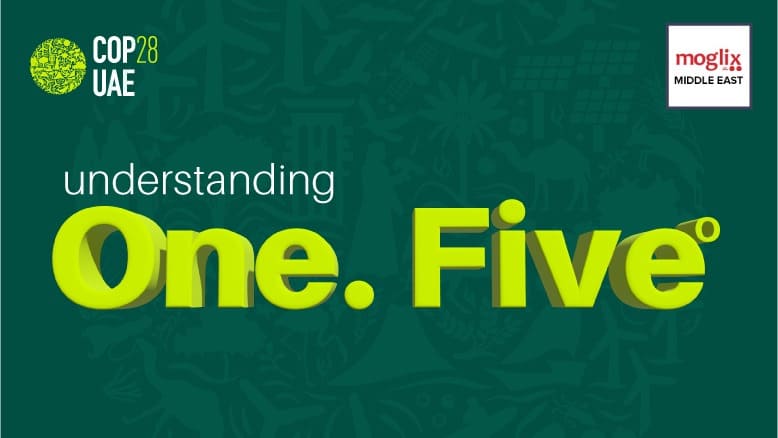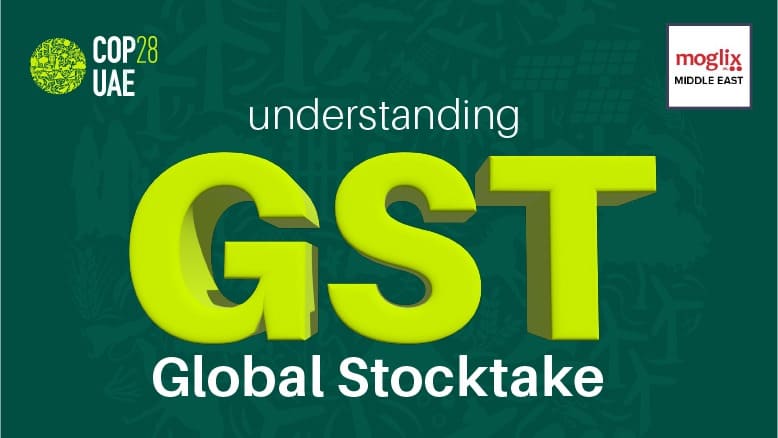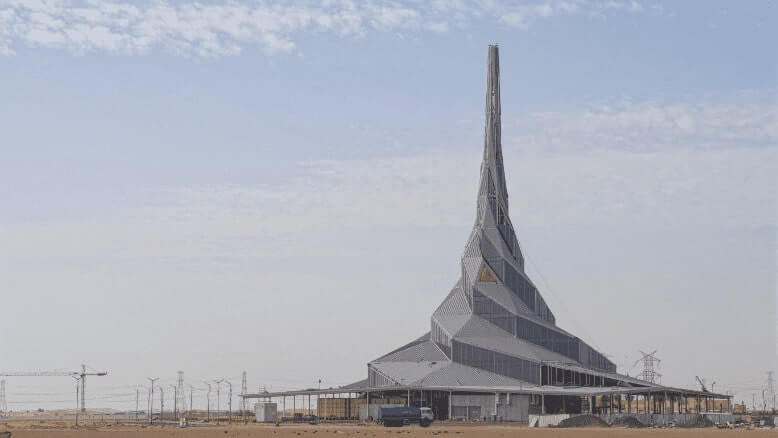Celebrating the Enduring Friendship Between India and UAE

Celebrating the Enduring Friendship Between India and UAE
The relationship between India and the United Arab Emirates (UAE) has always been characterized by warmth, with roots extending back to the 1970s. This ever evolving relationship, is further supported by geographical proximity, cultural affinity, and longstanding friendship, has only grown stronger and more dynamic in recent years. The catalysts for this deepened relationship span across various dimensions, from commerce to culture, each adding a layer of complexity and collaboration between the two nations.
Trade amid Global Challenges
The aftermath of the Russia-Ukraine conflict has seen a significant bolstering of trade between India and the UAE. This uptick in commerce is partly attributed to several pivotal developments that have streamlined and enhanced bilateral trade, investments, and cultural exchanges.
Bi-lateral Agreements
A landmark decision saw the central banks of India and the UAE permitting the use of local currencies (Rupees and Dirhams) for cross-border transactions. This move, aimed at facilitating trade, remittances, and investment flows, represents a significant step towards financial integration between the two countries. The linkage of India’s Unified Payments Interface (UPI) with the UAE’s instant payment system, Aani, alongside the acceptance of India’s RuPay cards in the UAE, is set to benefit over 3.5 million Indians residing in the UAE, as well as travelers between the two countries.
CEPA
The Comprehensive Economic Partnership Agreement (CEPA), signed in February 2022, has been a game-changer for India-UAE trade relations. This agreement, aiming to elevate bilateral trade to $100 billion in the next five years, has already yielded impressive results. With the UAE being India’s second-largest export destination after the US, and India being the UAE’s second-largest trading partner after China, the CEPA has facilitated historic highs in trade volumes. The period from May 2022 to March 2023 saw a 14% year-on-year growth in bilateral trade, with significant tariff cuts and streamlined business approvals under the FTA framework.
Investment Flows and Economic Integration
The UAE’s position as a key foreign investor in India has been solidified, with the Emirates emerging as the fourth largest foreign investor in FY23. Investments from the UAE’s sovereign wealth funds, such as the Abu Dhabi Investment Authority (ADIA), in various sectors of the Indian economy, underline the deep economic ties between the two nations. The establishment of a $4-5 billion fund by ADIA to invest in India through GIFT City, Gujarat, is a testament to the growing confidence in India’s economic potential.
The Innovation and Start-up Ecosystem
The UAE’s focus on innovation has opened new avenues for Indian entrepreneurs in sectors like e-commerce, logistics, and electric vehicles. Dubai-based VC firm NB Ventures is a prime example of how Emirati investors are supporting Indian start-ups, facilitating their expansion into the UAE and beyond.
Cultural and Demographic Bridges
The demographic and cultural ties between India and the UAE serve as a foundation for their strong bilateral relationship. With Indians making up nearly 30% of the UAE’s population, the social and economic contributions of the Indian community are significant. The recent inauguration of the BAPS temple in Abu Dhabi by Prime Minister Modi, a project gifted by UAE ruler Sheikh Mohamed bin Zayed Al Nahyan, symbolizes the deep cultural connections between the two nations.
Looking Ahead
Despite the positive trajectory, challenges remain. Trade analysts point to the need for diversification in trade and addressing the low value-add in India’s exports to the UAE. The CEPA, while a significant boost, is still in its early stages, with the full potential of the agreement yet to be realized. The India-UAE relationship stands at a promising juncture, with trade, investment, and cultural ties all witnessing unprecedented growth. The strategic initiatives and agreements between the two countries are not just milestones but stepping stones towards a future of even greater cooperation and mutual benefit. As this partnership evolves, it holds the promise of setting a benchmark for bilateral relations on the global stage, underpinned by shared goals of prosperity, innovation, and sustainable development.
India-UAE Collaboration in Renewable Energy, a future focused friendship

India-UAE Collaboration in Renewable Energy, a future focused friendship
In an era where sustainability and renewable energy have become central to global discussions, the partnership between India and the United Arab Emirates (UAE) stands out as a beacon of progressive collaboration. According to a recent report by the UAE-India Business Council (UIBC) and Nangia Andersen LLP, titled “Modern Energy: India-UAE Collaboration for a Sustainable Future (please hyperlink this heading https://nangia-andersen.com/core/uploads/2024/03/UIBC-Report-on-Modern-Energy.pdf),” the synergistic efforts of these two nations are set to play a pivotal role in shaping the future of renewable energy. This partnership is not just a diplomatic or economic alliance; it’s a shared journey towards achieving the United Nations Sustainable Development Goals, with renewable energy at its core.
A Vision for Sustainability
India and the UAE are both visionaries in the renewable energy sector, each with ambitious initiatives that showcase their commitment to a greener planet. India’s National Solar Mission and the UAE’s Energy Strategy 2050 are monumental efforts that signal a serious dedication towards the augmentation of renewable energy sources. These aren’t standalone efforts but part of a larger narrative of global sustainability and environmental stewardship.
Collaborative Pathways
The UIBC and Nangia Andersen LLP report illuminates numerous pathways for India-UAE collaboration within the renewable energy sector. The possibilities are vast and varied, encompassing solar and wind power expansion, the integration of advanced energy storage technologies, and innovations in grid solutions. Furthermore, the report underscores the importance of bilateral cooperation in burgeoning fields like hybrid renewable energy systems and the exploration of ocean and geothermal energy. It’s a comprehensive approach, aiming not just at energy production but also at workforce upskilling to sustain the growing industry.
A Catalyst for Global Change
The significance of the India-UAE partnership extends far beyond their bilateral ties. It represents a formidable force in the global energy landscape, with the potential to inspire and catalyze broader sustainability efforts worldwide. The partnership’s focus on scaling up renewable capacities and adopting avant-garde technologies positions these nations as exemplars in the transition towards cleaner energy systems.
Tangible Steps Towards a Greener Future
The report details several noteworthy initiatives that underline the tangible nature of this collaboration. The UAE’s pledge to allocate USD 75 billion in sovereign funds to India, alongside joint ventures in solar power equipment production, exemplifies the concrete steps being taken towards renewable energy cooperation. These endeavors are not just investments in technology but in the future of our planet.
The Road Ahead
With a projected growth in cumulative renewable capacity, exhibiting a Compound Annual Growth Rate (CAGR) estimated to rise from 9.24% to 15.06% between 2022 and 2028, the India-UAE partnership is more than a testament to their commitment to renewable energy. It’s a forward-moving force in the global quest for sustainability and environmental preservation. This collaboration between India and the UAE, rooted in shared values and vision, stands as a landmark in the journey towards a sustainable future, showcasing the power of unity in addressing some of the most pressing challenges of our time.
In a world grappling with climate change and seeking sustainable solutions, the India-UAE alliance in renewable energy emerges not just as a model of bilateral cooperation, but as a hopeful promise of a greener, more sustainable world for future generations.
UAE Soars Towards AI Supremacy

UAE Soars Towards AI Supremacy
Skyscrapers piercing the clouds have long been the hallmark of UAE ambition. Now, the nation dares to rewrite its future, not with steel and glass, but with the invisible threads of artificial intelligence (AI). The recent launch of the Artificial Intelligence and Advanced Technology Council (AIATC) marks a bold leap into the AI ecosystem, with the UAE setting its sights on global leadership.
Fueled by oil for decades, the UAE seeks to diversify its economy, shed its hydrocarbon dependence, and embrace the winds of technological transformation. The AIATC, headed by Sheikh Tahnoun bin Zayed Al Nahyan, stands as the pilot navigating this journey. Its mission: fast-track AI adoption across critical sectors, ignite innovation, and propel the UAE to the forefront of global AI prowess.
Beyond Oil – An AI-Powered Vision:
This isn’t a mere trend-chasing exercise. The UAE’s AI ambitions are deeply rooted in strategic foresight. Imagine AI streamlining healthcare, optimizing logistics, and personalizing tourism experiences. This is the future the AIATC envisions, a future where AI fuels economic growth and catapults the UAE alongside titans like the US, China, and the EU.
Building the Fortress of AI
To achieve this audacious vision, the UAE isn’t just writing checks. It’s constructing a robust AI ecosystem, brick by meticulously laid brick. Nationwide awareness campaigns are sowing the seeds of AI understanding, preparing the populace for the transformative potential of this technology. Universities are churning out skilled AI professionals, ensuring a future workforce ready to build and wield the tools of tomorrow.
Free economic zones, havens for AI startups and established players alike, entice global talent with licensing subsidies and a fertile ground for innovation. Strategic partnerships with industry leaders like OpenAI and Bedu fuel knowledge exchange and propel homegrown solutions. The UAE is strategically importing expertise while fostering internal creativity.
A Symphony of Collaborations
Collaboration is the orchestra conductor in this ambitious AI symphony. Local enterprises are harmonizing with industry giants, weaving melodies of progress. Etihad Airways, the national carrier, has embraced AI for enhanced flight safety, while technology firm Bedu uses AI to empower individuals and businesses. These collaborations demonstrate a commitment to not just utilizing AI, but shaping its future.
Areas of Concern
While the UAE’s AI journey is undeniably impressive, shadows of concern linger. The nation’s human rights record raises questions about potential misuse of AI for surveillance and suppression. Transparency and ethical considerations will be crucial in building trust and ensuring responsible AI development.
Taking Flight – The Quest for Global AI Supremacy
The UAE’s AI odyssey is a calculated gamble, one etched with both ambition and trepidation. Will it rewrite the future, becoming a beacon of AI innovation and inclusivity? Or will it stumble upon the rocky shoals of ethical lapses and internal contradictions? Only time will tell. But one thing is certain: the UAE’s AI flight is a spectacle worth watching, a journey that could redefine the landscape of technological leadership.
7 Trends Reshaping Supply Chain as we know in 2024

7 Trends Reshaping Supply Chain as we know in 2024
The once-invisible arteries of commerce are morphing into a marvel of technology and data. The humble supply chain, long plagued by inefficiencies and blind spots, is undergoing a revolutionary metamorphosis in 2024. At the helm of this change is a potent cocktail of cutting-edge technology – generative AI, automated planning, data-driven insights, and more – promising a future where transparency, resilience, and value flourish. This isn’t just a tech upgrade; it’s a complete rewiring of how we manage the flow of goods, a seismic shift with ripples felt across industries and economies. This blog uses insight published by KPMG
Let’s dive deeper into the specific trends shaping this great supply chain transformation;
Trend #1 – Generative AI
Forget fancy software wizards. GenAI is about injecting your supply chain with serious analytical muscle. Think of it as a data-hungry beast that devours information, learns your company’s unique rhythms, and spits out actionable insights to improve everything from procurement to production. It’s not about magic tricks, it’s about crunching massive data sets to predict problems before they bite you in the wallet.
Actionable Tips –
- Map the pain points – Identify specific areas where GenAI can tackle your biggest supply chain headaches, like late deliveries or inaccurate forecasts.
- Level up your data crew – Don’t expect GenAI to work with dusty spreadsheets. Invest in cleaning up your data mess and training your team to feed the beast the right information.
- Baby steps for big gains – Start small with pilot projects to test the waters. Once you see GenAI’s magic, you can scale up and automate like a champ.
Trend #2 – AI-Powered Planning
No more flying blind with guesswork and crossed fingers. Low-touch planning powered by AI is like having a crystal ball for your supply chain. It churns through complex scenarios, predicts demand fluctuations, and tells you exactly how much stuff you need to make, where to store it, and how to get it to customers without breaking the bank. No more late nights with Excel spreadsheets – AI takes the wheel and gives you time to focus on the big picture.
Actionable Tips –
- Train your planning team – Teach your folks how to interpret AI outputs and translate them into actionable plans. Data literacy is key to unlocking the full potential of this tech.
- Goals, not gadgets – Don’t let AI technology dictate your strategy. Set clear performance goals first, then let AI find the most efficient path to achieve them.
- Data is king, quality is queen – Garbage in, garbage out. Make sure your data is clean, consistent, and readily available before letting AI loose on it.
Trend #3 – Data
Your supply chain is drowning in a sea of data, but most of it sits there like forgotten treasure in a dusty attic. The key is to stop hoarding and start using. Focus on specific goals, collect data that actually matters, and clean it up so it’s fit for AI’s discerning palate. Once you do, you’ll unlock insights that can optimize inventory, predict equipment failures, and even spot opportunities for new products.
Actionable Tips –
- Focus on the prize – Don’t just collect data for the sake of it. Identify specific problems you want to solve and gather data that directly addresses them.
- Cleanliness is next to godliness – Dirty data is useless data. Invest in quality checks and data governance to ensure your information is reliable and consistent.
- Small steps, big leaps – Start with one or two data-driven projects to prove the concept. Once you see the results, you can scale up and transform your entire operation.
Trend #4 – Transparency Beyond Tier 1 & Tier 2
You can’t manage what you can’t see. That’s why extending your visibility beyond your immediate suppliers is like turning on the lights in a darkroom. Control tower technology and digital twins give you a panoramic view of your entire supply chain ecosystem, from raw material sourcing to final delivery. This means you can spot hidden risks, identify unethical practices, and even trace the carbon footprint of your products.
Actionable Tips –
- Partners in crime – Don’t go it alone. Collaborate with suppliers and industry partners to share data and build a clearer picture of your extended supply chain.
- Cross-functional teams – Break down the silos and bring together procurement, sustainability, and logistics teams to make the most of your newfound visibility.
Trend # 5 – Low-code platforms
Forget clunky custom software projects that take months and leave you chained to IT. Low-code platforms are a game-changer, letting business users (even those with limited coding skills) build apps that streamline your supply chain in real-time. Imagine automating purchase orders, tracking shipments with live data, or building custom dashboards showing exactly where your inventory is – all without waiting for months and praying the code compiles. These platforms are pre-loaded with integrations and APIs, letting you connect your previously siloed systems like Lego blocks. Low-code isn’t just a tech perk, it’s a mindset shift – empowering your team to react to disruptions, adapt to new strategies, and build an agile, resilient supply chain that fits your specific needs.
Action steps for 2024 –
- Map your pain points – Identify repetitive tasks or clunky processes causing bottlenecks. These are prime candidates for automation.
- Build basic, iterate fast – Start small with simple apps you can build quickly. See the value, then scale up from there.
- Empower your business users – Give them the tools and training to become your internal supply chain app-building superheroes.
Trend # 6 – ESG and Scope 3 emissions
Remember when sustainability was just about recycling paper? Those days are over. Scope 3 emissions – the hidden carbon footprint lurking in your entire supply chain – are now under the spotlight. Governments are mandating reporting, investors are demanding action, and customers are choosing eco-conscious brands. But tracking all those emissions across countless suppliers is a tangled mess.
Action steps for 2024 –
- Start with your biggest spenders – Prioritize suppliers contributing the most to your carbon footprint. Get them on board with data sharing and emissions reduction goals.
- Invest in carbon accounting tools – Ditch the spreadsheets and manual estimations. Cloud-based platforms simplify data collection and analysis, giving you a clear picture of your supply chain’s true environmental impact.
- Educate and collaborate – Train your team on Scope 3 and involve them in finding creative solutions. Work with sustainable suppliers and reward their efforts.
Trend # 7: Electric vehicles, transport, and logistics
Forget gas-guzzling trucks and warehouse workers running around like headless chickens. The future of logistics is electric, automated, and data-driven. Imagine self-driving delivery vans zipping through city streets, robots efficiently picking and packing orders in smart warehouses, and AI optimizing routes in real-time to save time and fuel. Sustainability meets efficiency – a win-win for your business and the planet.
Action steps for 2024
- Assess your fleet – Analyze your transportation needs and identify suitable routes for electrification. Start with short-distance urban deliveries first.
- Embrace automation – Look for opportunities to automate tasks in your warehouses and distribution centers. Free up your humans for higher-value work.
The future is no longer a distant horizon; it’s knocking on your warehouse door. The question isn’t if you’ll embrace these trends, but how quickly and effectively you do. Those who hesitate will find themselves at the mercy of disruption, while those who lead the charge will shape a future of seamless flow, resilience, and responsible value creation.
Understanding Bharat Mart.

Understanding Bharat Mart.
India’s trade ambitions just got a major boost with the proposed “Bharat Mart” in the United Arab Emirates. This ambitious project, envisioned as a one-stop shop for Indian exports, mirrors China’s successful Dragon Mart and promises to revolutionize how Indian businesses reach global markets.
Why Bharat Mart is a game-changer?
l Unified platform: Imagine a sprawling 100,000 square meter complex housing everything from retail showrooms to warehouses, showcasing Indian products in all their glory. Bharat Mart offers a single destination for international buyers, eliminating the need to scramble through multiple vendors.
l Strategic location: Nestled in Dubai’s Jebel Ali Free Zone, Bharat Mart taps into the UAE’s logistical prowess and acts as a gateway to the Middle East, Africa, and Europe – markets teeming with potential for Indian exporters.
l Efficiency and cost savings: Time and money saved, that’s Bharat Mart’s promise. By streamlining logistics and consolidating operations, Indian businesses can cut down on transportation costs and reach buyers faster.
l Digital edge: Bharat Mart envisions a digital platform alongside the physical facility, allowing global buyers to browse and purchase Indian goods at their fingertips. This omnichannel approach caters to modern buying habits and expands reach even further.
l India-UAE synergy: As part of the ambitious CEPA agreement, India and the UAE aim to double non-oil trade to $100 billion by 2030. Bharat Mart is a powerful tool to achieve this goal, boosting Indian exports and strengthening economic ties.
Beyond the benefits, there are exciting possibilities:
l Brand showcase: Bharat Mart can become a brand recognition hub for Indian companies, enabling them to establish themselves in new markets.
l Job creation: This initiative has the potential to generate employment opportunities in both India and the UAE, benefiting both economies.
l Innovation boost: The sheer scale and focus on efficiency can inspire further innovation in India’s export sector.
While still in its developmental stage, Bharat Mart holds immense promise for businesses in India and in the UAE. It’s a bold step towards claiming a larger share of the global market and a testament to India’s growing ambitions. From perishables to heavy machinery, get ready to see “Made in India” proudly displayed on a global stage.
The Bharat Mart will be a significant step forward in the bilateral trade ties of the nations. And manufacturers and exporters in the UAE and India alike can benefit from access to a bigger and more diversified market, profitable strategic partnerships, and sharing of tech initiatives and innovations. A future focused organization like Moglix with its tech led B2B supply chain ecosystem can play a pivotal
role in welcoming India and the UAE to the next phase of growth. To know more about how Moglix can augment and optimize the procurement process, click here
COP28 Climate Countdown: 1.5°C and Beyond

COP28 Climate Countdown: 1.5°C and Beyond
Amidst the global congregation at COP28, a singular figure commands attention—1.5°C. Beyond rhetoric, this term resonates in climate commitments and echoes on the Climate Clock. Unraveling the intricacies of “1.5°C” becomes imperative, exploring its genesis, repercussions, and the quest to achieve this milestone as the climate summit in Dubai looms.
Pinpointing the precise instance of breaching the 1.5°C threshold, as stipulated in the Paris climate accord, emerges as a nuanced quandary. The absence of a universally embraced definition for long-term global warming prompts diverse interpretations, fueling debates on the timeline for surpassing the 1.5°C goal.
While projections hint at an imminent short-term ascent to this temperature rise, potentially within the next few years, the complexities of climate trends, measured over decades, complicate pinpointing the exact breach of the Paris Agreement. Richard Betts of the UK Met Office’s Hadley Centre proposes an innovative strategy—intertwining global temperature observations from the past decade with forecasts for the next ten years. This proposition seeks to establish a universally accepted metric for global warming, potentially galvanizing immediate actions to avert further temperature escalations.
The Unexpected Ambition of 1.5C:
The 1.5C “stretch target” within the Paris Agreement emerged unexpectedly, defying initial expectations. Myles Allen, a professor at the University of Oxford, acknowledges the surprise, emphasizing the ambition of the agreement. Rooted in assessments of climate change impacts at varying warming levels, the 1.5C target gained prominence. Scientific evaluations revealed notable advantages, such as reduced extreme heat and the preservation of crucial polar sea ice, prompting a collective global focus on this ambitious goal.
Setting a Focal Point for Global Action:
Before the Paris Agreement, the world lacked a definitive target to rally around in combating climate change. The adoption of the 1.5C figure marked a pivotal moment in the climate change community. Pauline Dube, an environmental scientist, underscores its significance as a unified global goal, providing a shared direction for concerted efforts to mitigate the impacts of climate change.
For vulnerable regions, notably small islands and low-lying nations, grappling with intensifying storms, rising sea levels, and environmental degradation, the 1.5C scenario remains an existential challenge. Securing adequate loss and damage funding emerges as a pivotal component for the sustained survival and adaptation of these at-risk regions. Beyond current conditions, a 1.5C world confronts heightened risks of extreme heat, amplified stress on food production and water access, and an expanded spectrum of insect-borne diseases like malaria and dengue fever.
Regions like the Arctic, witnessing nearly four times faster warming since 1979, and Africa, experiencing a rapid 0.3C per decade increase between 1991 and 2020, surpassing the global average, exemplify the localized impacts. The timeline for surpassing the 1.5C mark presents intricate projections. The IPCC initially estimated a 50% chance of reaching 1.5C by the mid-2030s. However, recent analyses incorporating updated data suggest a potential earlier milestone, as soon as 2029. The discrepancy between passing 1.5C on individual days, months, and years versus the decadal average adds complexity to the assessment.
Navigating this nuanced landscape, Professor Myles Allen, a lead author on the IPCC report, emphasizes the impracticality of fixating on the precise year of crossing the 1.5C threshold. The intricacies of accurately estimating global temperature changes from decade to decade underscore the need for a holistic understanding rather than fixation on specific timelines. As we grapple with the unfolding climate dynamics, contextualizing these complexities becomes pivotal for informed discourse and strategic decision-making.
The fluidity of estimates regarding when we will breach the critical 1.5C warming mark underscores the intricate interplay of climate policies and evolving scientific analyses. As nations recalibrate their climate strategies, the projected timelines for reaching 1.5C are subject to adjustments. Similarly, refinements in climate models, often fueled by re-analyses of historical climate data, contribute to nuanced alterations in estimates.
A notable instance postdating the IPCC’s 1.5C report involves scientists revisiting the historical climate record. The outcome, revealing a 0.2C increase relative to preindustrial levels, amplifies the urgency of our proximity to the 1.5C threshold. Professor Myles Allen emphasizes that when confronted with such proximity, the inevitability of reaching 1.5C in approximately a decade becomes self-evident.
Delving into the gradations of warming, the distinction between 1.5C and 2C emerges starkly. While the impacts intensify with each degree of warming, the acceleration of impact severity per degree amplifies as temperatures rise. This underscores the pivotal role of incremental temperature changes, elucidated by Allen’s insight into the adaptation of ecosystems and economies to the climate of the late 19th and early 20th Century. As we navigate this intricate terrain, the imperative lies in grasping the cascading consequences of each temperature increment and their profound implications for the world as we know it.
As the specter of overshooting the 1.5C threshold looms, a poignant report unveiled at COP28 by climate and social scientists paints a stark picture of the inevitability of this trajectory. The emphasis lies not only on breaching the 1.5C threshold but also on mitigating the scale and duration of this overshoot, recognizing its profound implications for climate tipping points, vulnerable societies, and the delicate balance of ecosystems and economies.
The report underscores the critical need to comprehend not just whether we surpass 1.5C but the temporal dimensions of dwelling above this critical warming level. Prolonged overshoot intensifies the risk of crossing irreversible climate thresholds, amplifying damage to societies, ecosystems, and economies that bear the brunt of climate vulnerability.
Averting overshoot demands a substantial 43% reduction in emissions compared to 2019 levels, presenting a formidable challenge for global stakeholders. Sir David King, leading the Climate Crisis Advisory Group (CCAG), asserts that while overshoot is undesirable, prompt emission reduction remains the safest recourse. However, acknowledging overshoot as a potential backstop, King highlights the imperative of massive-scale carbon capture technologies, projected to absorb 10 to 15 billion tonnes of carbon dioxide annually. This staggering magnitude, surpassing EU and US emissions, underscores the monumental task ahead.
Crucially, reversing overshoot requires integrating these technologies alongside rigorous emission reduction, emphasizing the urgency of advancing carbon capture on an unprecedented scale. The financial and temporal costs of this endeavor, compounded by the centuries-long recovery period for crucial systems, underscore the imperative of prioritizing proactive measures to sidestep overshoot. As the world grapples with the complexities of climate intervention, the deliberation on avoiding overshoot versus navigating its consequences emerges as a pivotal dialogue in shaping our collective climate destiny.
Amid the labyrinth of climate negotiations at COP28, keen observers are on the lookout for promising indicators that could steer the trajectory toward staying within the 1.5C warming limit. As sustainability enthusiasts, we focus on key markers that reflect a collective commitment to decarbonization and climate justice.
Sir David King, a stalwart in climate diplomacy, places a spotlight on the crucial role of robust leadership from global heavyweights, the United States and China. Highlighting the recent collaborative agreement on climate action between the two nations, King emphasizes the pivotal nature of their strategic approach. A domino effect is anticipated, with the European Union, India, and Brazil potentially joining forces when presented with a compelling strategy.
For Professor Myles Allen, an advocate of positive tipping points, the transformative potential lies in accelerating decarbonization. He pinpoints encouraging shifts in renewable power dynamics and the surging adoption of electric vehicles as beacons signaling a positive tipping point.
Environmental scientist Pauline Dube underscores the urgency of a paradigm shift, acknowledging the profound injustice inherent in climate change, particularly impacting the Global South. Dube stresses the need for an inclusive, whole-society transformation, characterized by fairness, robust support for adaptation, and dedicated funding for climate-vulnerable nations grappling with loss and damage.
As we traverse the intricate landscape of COP28, these signs of progress inspire hope and illuminate the collective journey toward a sustainable, equitable future. The unfolding narrative at the intersection of global leadership, decarbonization milestones, and climate justice narratives forms a tapestry of promise in our pursuit of a 1.5C-resilient world.
Alarm Bells Ringing at COP28: Global Stocktake in focus

Alarm Bells Ringing at COP28: Global Stocktake in focus
As COP28 approaches, the first-ever global stocktake casts a stark light on our collective climate progress. While the Paris Agreement goals remain, the reality paints a sobering picture: we’re off track. The 1.5°C target hangs precariously, and the window for meaningful change is rapidly narrowing. This critical juncture demands immediate action.
COP28 presents a pivotal opportunity. The global stocktake serves as a mirror reflecting both our achievements and shortcomings, guiding us towards more ambitious climate action plans. Governments will make a crucial decision at COP28, one that can set the course for our collective future. This decision holds the potential to accelerate ambition, unlock resources, and propel us towards a sustainable tomorrow.
Yet, the path forward demands more than mere words. We must collectively rise to the challenge, leveraging the global stocktake as a springboard for urgent action. Join us as we delve deeper into the implications of the global stocktake, exploring the challenges that lie ahead and the opportunities we must seize. Together, let us amplify the call for action and build a world where climate ambition translates into tangible results.
What is Global Stocktake?
Imagine taking a comprehensive inventory of your home, examining each item and its purpose. This is precisely what the global stocktake does for climate action. It’s a meticulous process of assessing our collective progress, identifying areas where we’re falling short, and collaboratively charting a course for a more sustainable future.
Occurring every five years, the global stocktake will culminate at COP28, offering a critical opportunity to inform the next round of climate action plans known as NDCs. By holding up a mirror to our collective efforts and highlighting areas needing improvement, the stocktake empowers policymakers and stakeholders to strengthen their commitments and pave the way for accelerated action.
Think of it as a strategic pause to assess our journey towards the Paris Agreement goals. It’s a chance to identify gaps, learn from successes and failures, and ultimately, chart a more ambitious course forward. By embracing the insights gained from this global inventory, we can collectively translate good intentions into concrete action, propelling us towards a more sustainable and resilient future.
The Scope of the Global Stocktake
The global stocktake goes beyond a mere assessment of progress. It delves into the very core of our collective climate action, scrutinizing three key areas:
- Mitigation: This pillar focuses on evaluating how successfully we’re reducing greenhouse gas emissions. It analyzes our progress towards the ambitious targets of keeping global warming below 2°C and ideally 1.5°C, while identifying potential for even deeper emission cuts.
- Adaptation: Here, the stocktake assesses how countries are strengthening their resilience and reducing vulnerabilities to climate impacts. It examines their ability to adapt to the changing climate and minimize potential damage.
- Means of Implementation: This area scrutinizes the financial, technological, and capacity-building support provided to developing nations. It evaluates the alignment of financial flows with emissions reduction and climate-resilient development goals, ensuring that these nations receive the resources they need to tackle the climate crisis effectively.
Furthermore, the global stocktake extends its reach to address:
- Loss and Damage: This examines the actions and support needed to respond to climate impacts exceeding a community or ecosystem’s ability to adapt. It recognizes the devastating consequences of climate change and seeks solutions to address them.
- Response Measures: This acknowledges the potential unintended social and economic consequences of climate action. It seeks to minimize these impacts and ensure that climate action is implemented in a just and equitable manner.
- Science and Equity: The stocktake emphasizes the importance of relying on the best available science to inform climate strategies. It also underscores the critical need for promoting equity and ensuring that all stakeholders are involved and benefit from the transition to a sustainable future.
In essence, the global stocktake acts as a comprehensive audit of our climate action efforts, leaving no stone unturned in its quest for a more sustainable tomorrow. By rigorously examining every aspect of our progress, we can identify areas for improvement, strengthen our commitments, and pave the way for a future where climate action is the norm, not the exception.
A Stark Wake-Up Call
While the Paris Agreement has undoubtedly spurred global climate action, the sobering reality revealed by the global stocktake is that implementation falls short across all areas. The ambitious 1.5°C target remains elusive, and current emissions trends paint a bleak picture. Despite pockets of progress, adaptation efforts are insufficient to meet the growing challenges of climate change.
The stocktake emphasizes the need for a radical shift – a systems transformation. This entails a whole-society, whole-economy approach that seamlessly integrates climate resilience and development with low greenhouse gas emission strategies. Such sustained efforts over decades are crucial to achieving sustainable development and eradicating poverty, ensuring a future where both environmental and human needs are met.
However, a stark disparity exists between the needs of developing nations and the support provided. The stocktake calls for unlocking and redirecting trillions of dollars towards climate action and climate-resilient development in these countries. Only by closing this financial gap can we ensure a just and equitable transition to a sustainable future for all.
The global stocktake is not merely an assessment; it’s a clarion call for action. It serves as a roadmap for closing the implementation gap, reminding us of the urgency and the magnitude of the task ahead. By embracing the insights it offers, we can collectively chart a more ambitious course, transforming our climate action efforts into tangible results that safeguard the planet for generations to come.
Findings hint towards a Call for Urgent Action
The initial findings of the Global Stocktake paint a clear picture: we are not doing enough. Despite some progress, the current trajectory of climate action falls short on all fronts, jeopardizing the long-term goals of the Paris Agreement.
Key findings across the three main goals are alarming:
Mitigation:
- Emissions Gap: Current national plans leave a massive gap of 20-24 billion tons of CO2 equivalent between projected emissions and what’s needed for a 1.5°C pathway.
- Ambition Needed: Updated NDCs must be significantly more ambitious, including phasing out fossil fuels and halting deforestation.
- Cost-Effective Solutions: Green industrialization and other strategies offer opportunities to cut emissions while promoting development.
- Just Transition: Shifting away from fossil fuels requires careful planning to minimize disruptions to jobs and communities.
Adaptation:
- Closing Window: The window to adapt to climate impacts is rapidly closing, demanding urgent action.
- Fragmented Efforts: While ambition is increasing, adaptation actions are often disconnected, incremental, and unequally distributed.
- Local Context Matters: Adaptations must be driven by local needs and populations, including marginalized groups.
- Scaling Up Finance: Rapidly increasing finance for adaptation and addressing loss and damage is crucial.
Implementation and Finance:
- Finance Shortfalls: Despite progress, developed countries are not providing enough financial support to developing countries.
- Global Financial Transformation: The global financial system needs to be redesigned to support climate action.
- Simplified Access: Developing countries need easier access to international climate funds.
- Technology Transfer: Accelerating technology transfer is vital for implementing climate solutions.
Implications for the Future:
The Global Stocktake findings demand a strong political response from countries. This includes:
- Updated NDCs: Countries must significantly increase the ambition of their national climate action plans by 2025.
- Biennial Transparency Reports: These reports will track progress towards agreed goals.
- Ratcheting Up Mechanism: The Global Stocktake is a key element in the process of continuously strengthening climate action to meet the Paris Agreement goals.
The Global Stocktake serves as a wake-up call. It is time to move beyond incremental change and embrace a transformative approach to climate action. We must act collectively and urgently to secure a sustainable future for all.Next Steps after the Global Stocktake
UAE is making Abayas go Sustainable

UAE is making Abayas go Sustainable
In a land known for its opulence and architectural marvels, a new wave of Eco-consciousness is sweeping across the United Arab Emirates (UAE). The UAE, with its towering skyscrapers and luxurious lifestyle, is embracing a more sustainable and environmentally responsible future. This transformation is evident in the innovative initiatives that are turning plastic bottles into stylish clothing and crafting biodegradable Abayas, a traditional attire worn by many Emirati women.
A Sustainable Vision for the Future
Deeply embedded in the UAE’s long-term vision is a strong commitment to being eco-friendly, especially when it comes to managing waste. The goal is pretty ambitious: cut down on carbon emissions, protect nature, and encourage practices that use sustainable energy. And guess what? The fashion industry is taking the lead in making this happen, making it a crucial part of the UAE’s promise to take care of the climate.
Now, when we talk about sustainable fashion in the UAE, here’s something really cool – they’re turning used plastic bottles into clothes. It isn’t just about helping the environment; it’s also a bold fashion move. Big brands are jumping on board, making the UAE a trendsetter in turning piles of plastic waste into stylish clothing.
But that’s not all. The UAE’s sustainable fashion scene also loves materials that can easily go back to nature, like bamboo, organic cotton, and Tencel. These are the good-for-the-environment fabrics used to make traditional Abayas. So, not only are these clothes comfy and breathable, but they’re also a way of saying, “Hey, we care about the planet.”. In the UAE, they’re not just making clothes; they’re telling a story of style that goes hand in hand with taking care of our world.
Sustainable Local Excellence
DGrade: This Dubai-based company specializes in transforming millions of discarded plastic bottles into high-quality yarn. The process involves collecting, sorting, washing, and shredding plastic bottles into small flakes. These flakes are then melted and spun into threads, which are woven into soft, breathable, and sturdy fabrics. DGrade’s recycled polyester is used to create a range of clothing, including Abayas, T-shirts, jackets, and hats.
Al Amira Fashion: Another Dubai-based brand, Al Amira Fashion, specializes in sustainable Abayas crafted from bamboo, organic cotton, and Tencel. These Abayas offer breathability, moisture-wicking properties, and a silky touch. They are wrinkle-resistant and easy to maintain. The organic cotton used in their production is farmed without the use of pesticides or herbicides, while Tencel Abayas are created from sustainable wood pulp.
Fashion made from recycled plastic bottles and biodegradable materials brings several environmental benefits. First and foremost, it significantly reduces plastic waste, thereby conserving natural resources. Additionally, it plays a role in reducing greenhouse gas emissions. DGrade, for instance, has contributed to recycling an impressive 60 million plastic bottles since its inception, leading to a substantial reduction in global plastic waste.
Sustainable Abayas from Al Amira Fashion also contribute to environmental preservation. Bamboo Abayas save water and reduce the need for pesticides. Organic cotton Abayas help conserve water and eliminate the use of pesticides, while Tencel Abayas play a role in minimizing deforestation.
COP28: A Global Stage for Environmental Action
In November 2023, Dubai, UAE, will host the 28th Conference of the Parties (COP28) to the United Nations Framework Convention on Climate Change (UNFCCC). COP28 is a crucial global event where world leaders converge to address climate change and formulate strategies to reduce greenhouse gas emissions.
Sustainable fashion stands as a prime example of the UAE’s environmental efforts, aligning with the Dubai Fashion & Design Council’s Sustainability Program and other government initiatives. These efforts not only support sustainability in fashion but also contribute to a larger global movement towards a greener and more responsible fashion industry.
Inspiring an Eco-Conscious future with Style
The journey towards sustainable fashion in the UAE has only just begun. The future holds promise, with potential collaborations with international brands, ongoing research into eco-friendly materials, and educational efforts aimed at raising awareness about responsible fashion practices. With the world’s eyes on the UAE, this nation is poised to inspire a global shift towards Eco-conscious and sustainable fashion.
In a region renowned for luxury and extravagance, the UAE is boldly embracing a more sustainable path, symbolized by the transformation of discarded plastic bottles into garments and the creation of biodegradable Abayas. As the world gears up for COP28, the UAE positions itself as a champion of sustainable living and climate responsibility.
Moglix, an Asia-based B2B commerce startup, is playing a pivotal role in the UAE’s sustainable economic landscape. The company is aligned with the UAE’s vision for a greener future by assisting SMEs and major organizations in digitizing their procurement processes. Learn more about how Moglix is at the forefront of promoting sustainability in procurement, aligning perfectly with the UAE’s journey towards a more sustainable future.
The Solar Renaissance in the UAE: Illuminating Tomorrow

The Solar Renaissance in the UAE: Illuminating Tomorrow
In the arid expanse of the Arabian desert, where temperatures soar and sunlight prevails, the UAE, synonymous with towering skyscrapers and a flourishing oil economy, is pioneering a transformative solar revolution to embrace a greener future. Let’s delve into the radiant world of the UAE, embracing solar energy as a beacon for sustainable progress.
The Current Solar Endeavors in the UAE
The UAE’s expanding solar portfolio underscores its steadfast commitment to solar power. Notably, Dubai’s Mohammed bin Rashid Al Maktoum Solar Park, positioned as the world’s largest single-site solar park, is set to generate 5,000 megawatts by 2030 across 40 sq. km.
Smaller yet significant projects, including the 1,177-megawatt Noor Abu Dhabi Solar Plant, mirror the nation’s dedication to energy diversification and reducing reliance on fossil fuels. As of September 2021, solar power constitutes 9% of the UAE’s total energy consumption, a figure expected to ascend with the nation’s unwavering commitment to solar energy.
Motivation Behind the UAE’s Solar Transition
The UAE’s pursuit of solar energy extends beyond economic diversification. Driven by environmental consciousness, the nation aims to mitigate the ecological repercussions of fossil fuel dependency. By embracing solar electricity, the UAE not only secures its energy future but also positions itself as a global environmental advocate actively combating climate change.
The UAE’s solar initiative yields unique advantages beyond clean energy generation. It stabilizes the energy supply, mitigating the country’s vulnerability to oil price fluctuations. Moreover, the shift towards green energy fosters economic growth and technological innovation, establishing the UAE as a pioneering force in renewable energy. This, in turn, attracts investments and enhances the nation’s global image.
Government-Led Initiatives Fueling the Solar Momentum
The UAE government spearheads the solar revolution, offering incentives like feed-in tariffs and power purchase agreements to entice private-sector participation in renewable energy projects. Noteworthy is the UAE Council for Climate Change and Environment, showcasing the nation’s commitment to sustainability.
The UAE’s solar future shines brightly, with explorations into concentrated solar power and energy storage technologies to enhance efficiency and reliability. Collaborations with international partners and experts will likely play a pivotal role in realizing these sustainable development goals.
The robust environmental connection between India and the UAE sees Indian enterprises actively engaging in solar projects. This collaboration, driven by shared concerns about energy needs, serves as a model for sustainable development.
COP28: A Pinnacle in the UAE’s Climate Endeavors
As the UAE strides towards Net Zero emissions, its hosting of COP28 in Dubai from November 30 to December 12, 2023, aligns seamlessly with its solar power commitment. The global platform will showcase the UAE’s achievements in SDGs and advocate for collective action on climate change.
The UAE’s solar revolution marks a monumental stride towards a sustainable and eco-friendly future. Beyond the realm of solar technology, industries such as B2B trade are embracing solar power to foster growth. Pioneering this transition is Moglix, a key player in providing supply chain and digital procurement solutions. Explore the transformative impact of technology on efficiency, cost reduction, and global industry growth with Moglix.
Dubai’s Pioneering Journey Towards 100% Water Utilization

Dubai’s Pioneering Journey Towards 100% Water Utilization
Dubai, the vibrant metropolis of the UAE, is renowned for its opulence and innovation. In recent years, the city has embarked on a remarkable journey toward achieving 100% water consumption, aligning with its role as the host of COP28, its commitment to sustainable practices, SDG goals, and global leadership.
The Uniqueness of Dubai’s Water Challenge
Dubai’s water management challenges are as unique as the city itself. Nestled in a desert climate characterized by scorching heat and limited freshwater sources, Dubai has had to employ innovative water sustainability strategies. The city’s rapid urbanization and population growth have put significant stress on these water resources, making water efficiency a paramount concern. The exacerbation of these problems due to rising global temperatures, a consequence of climate change, adds to the complexity.
The Dubai Way: Recycling and Desalination
Dubai’s ambitious goal of achieving 100% water utilization hinges on two primary methods: recycling and desalination.
Wastewater Recycling: Dubai Municipality has introduced cutting-edge wastewater treatment plants that adhere to rigorous quality standards. This purified water, known as “gray water,” finds application in irrigation, cooling, and industrial processes. This strategy not only conserves precious freshwater but also reduces the environmental impact associated with wastewater discharge.
Desalination: Recognizing the pressing need for freshwater in this arid region, Dubai has made substantial investments in desalination technology. The city boasts some of the world’s largest desalination plants, which efficiently convert saltwater into freshwater. The Dubai Way optimizes desalination processes to minimize energy consumption and environmental consequences.
The Evolution of Water Reclamation
Dubai’s journey towards water reclamation began in the late 1960s, marking a pivotal turning point in the city’s sustainable growth. In 1969, the Dubai Municipality established the first wastewater treatment plant in Al Khawaneej. The rapid urbanization of Dubai necessitated an expanded wastewater treatment and reclaimed water capacity, leading to the inauguration of the Warsan plant in 1981. By 2006, Jebel Ali further expanded Dubai’s water recycling capacity to meet the burgeoning demand for reclaimed water, bolstering water conservation efforts.
The Future of Dubai’s Water Management
Dubai’s water management objectives closely align with the goals of COP28 and the UN’s Sustainable Development Goals (SDGs). As the host of COP28, Dubai seeks to serve as a global exemplar of sustainable practices. The city is determined to make its water consumption sustainable and reduce its overall water footprint. This is being achieved through:
Innovation: Dubai is actively funding research in water purification and desalination energy efficiency. The city leverages modern technology and intelligent systems for the monitoring and regulation of water usage.
Public Awareness: Dubai Municipality vigorously promotes water conservation among its residents and businesses. Awareness campaigns and incentives play a crucial role in encouraging people and enterprises to adopt water-saving practices.
Sustainable Cities: Dubai is pioneering sustainable urban development in the region. Projects like Masdar City and Sustainable City Dubai exemplify water-sustainable, energy-efficient, and environmentally friendly urban living.
Dubai’s ambitious quest for 100% water utilization sets a remarkable example of sustainability and innovation. The city has harnessed the power of recycling and desalination to secure its water future, overcoming distinctive challenges. By hosting COP28 and adhering to the principles of the SDGs, Dubai showcases its unwavering commitment to the global community. The city’s ultimate aspiration is to eradicate water scarcity and construct sustainable desert communities by embracing the Dubai Way.
Moglix in the UAE is working in this space to ensure organisations (private and public)their sustainability goals are aligned with their procurement goals. Moglix is the most comprehensive procurement solution in the UAE, that combines E catalog based buying experience, digital procurement and supply chain solution with a physical warehouse and logistics network, allowing you a complete and most comprehensive E2E procurement and supply chain solution. Reach Us

